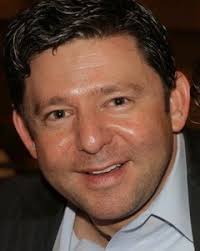Walking in My Child’s Shoes
This month’s post is by Rabbi Larry Sernovitz, the the founding rabbi and executive director of Nafshenu, a spiritual community/synagogue in Cherry Hill, NJ.
It was a typical morning in my home. My three-year old daughter is 
My daughter goes to a Jewish preschool where her secular studies and Judaism are intertwined. This is her Jewish identity. But, for the hundreds of people that I work with in my capacity as rabbi of Nafshenu, the bulk of their lives have been lived believing that there is a distinction between Jewish and secular life. These are largely unaffiliated Jews who have been disillusioned with institutional Jewish life. But they are not disinterested in finding a connection with Jewish life and want to learn and ask the deep existential questions about our world. They are hungry for Jewish learning, spiritual prayer, repairing our broken world, and finding like-minded people who want the same thing.
The four propositions that Rabbi Sid outlines in Jewish Megatrends are at the heart of Nafshenu’s work and have been so, since its inception. Our mantra is to be comfortable with the comfortable. This is how we grow.
Proposition One: Chochma/Jewish Wisdom
The world can be accessed by a click of a mouse or a search on our smart phones. At the same time, we suffer from information overload. There is unlimited information at our fingertips yet most people don’t even know where to begin. This is especially true in the Jewish world. The unaffiliated population, hovering around 60% in South Jersey, are yearning to learn and be inspired by Jewish tradition. Part of Nafshenu’s mission is to inspire people to live intentional lives through the study of Torah.
Over the last three years, we have created: Men’s and Women’s Foundational Study Groups; an Adult B’nai Mitzvah program (which includes Torah, Talmud, and Hebrew study); and the study of Rabbinic literature every Friday night and Saturday morning during services. We have connected hundreds of people to our tradition and to the relevance of Torah in a modern world. We have placed a Torah in the hands of a young Israeli mother who, through her tears, expressed how she never thought she would be able to hold one because she is a woman. At the same time, we placed a Torah in the hands of the Catholic wife of a Jewish man who was so moved that she could be a part of bringing her husband back into the fold of the Jewish community. We have created partnerships with local interfaith clergy and their congregations, including reading the Ten Commandments from the Torah during a Shavuot/Pentecost Program with the local Lutheran Church, learning that many unaffiliated Jews want to learn about other faiths and how they intersect with Jewish life.
Propositon Two: Tzedek/Social Justice
Most people understand that the world we live in is broken. But Jewish history teaches that this is nothing new. Being part of making the world a better place is a key component of Jewish life. But, unless you are looking for it, opportunities are not readily available. A mitzvah day doesn’t fulfill the desire to help create ongoing and sustainable change. A large percentage of unaffiliated Jews want to be a part of that change, whether it is hands-on and project based or in the realm of advocacy for legislative action. Our community has helped to plan justice rallies, host Shabbat social justice roundtables, and be a part of the inaugural projects hosted by the One America Project, supported by Repair the World. This project brought together various faith communities with differing political leanings, to do a social action project and break bread afterwards. The project brought together Muslims, Christians, Sikhs, and Jews.
Proposition Three: Kehilla/Community
As many people have experienced, if you attend a Bar/Bat Mitzvah, the majority of the guests are not members of that specific congregation. People belong to many different communities and the 21st century synagogue has not really served as the social outlet for many Jewish families, especially the unaffiliated Jewish population. By providing different opportunities to gather and deepen relationships, we have created a social network for people who never saw the synagogue as a social outlet. We have done this by forming small groups for people with similar needs or interests: a group for divorces; a support group for those dealing with substance abuse; some book clubs; and a group for intergenerational programming. For Shabbat, we always share a meal together and, on Saturday mornings, we provide coffee, tea, and doughnuts for attendees to enjoy during the service. We have voluntary dues where families can pay as they wish and a Giving Souls Program where families can become sustaining souls (members) of the community by making a monthly donation. We keep overhead low, along with barriers to inclusion, by meeting in a local Lutheran Church which does not charge us rent.
Proposition Four: Lives of Sacred Purpose/Kedusha
The number one thing we hear from unaffiliated Jews is that they want to find their path, their sacred purpose in life. “I never talked about God growing up.” “I never understood that there was more than one way to understand God.” Through prayer, study, and justice work, our community not only talks about sacred living, but we live it. Meaning is infused into everything we do. From family dynamic relationship issues, to employment, to illness and death, to managing stress and getting stuck in life, we provide weekly opportunities to engage in soul work. People want to know that their life matters and that where they currently are is not where they have to stay.
[themify_hr color=”light-gray” width=”100%”]
Rabbi Larry Sernovitz is the founding rabbi and executive director of Nafshenu, a spiritual community/synagogue in Cherry Hill, NJ. He is an educator, a student, an innovator, a social justice advocate, and a believer in the future of Jewish life in America.

